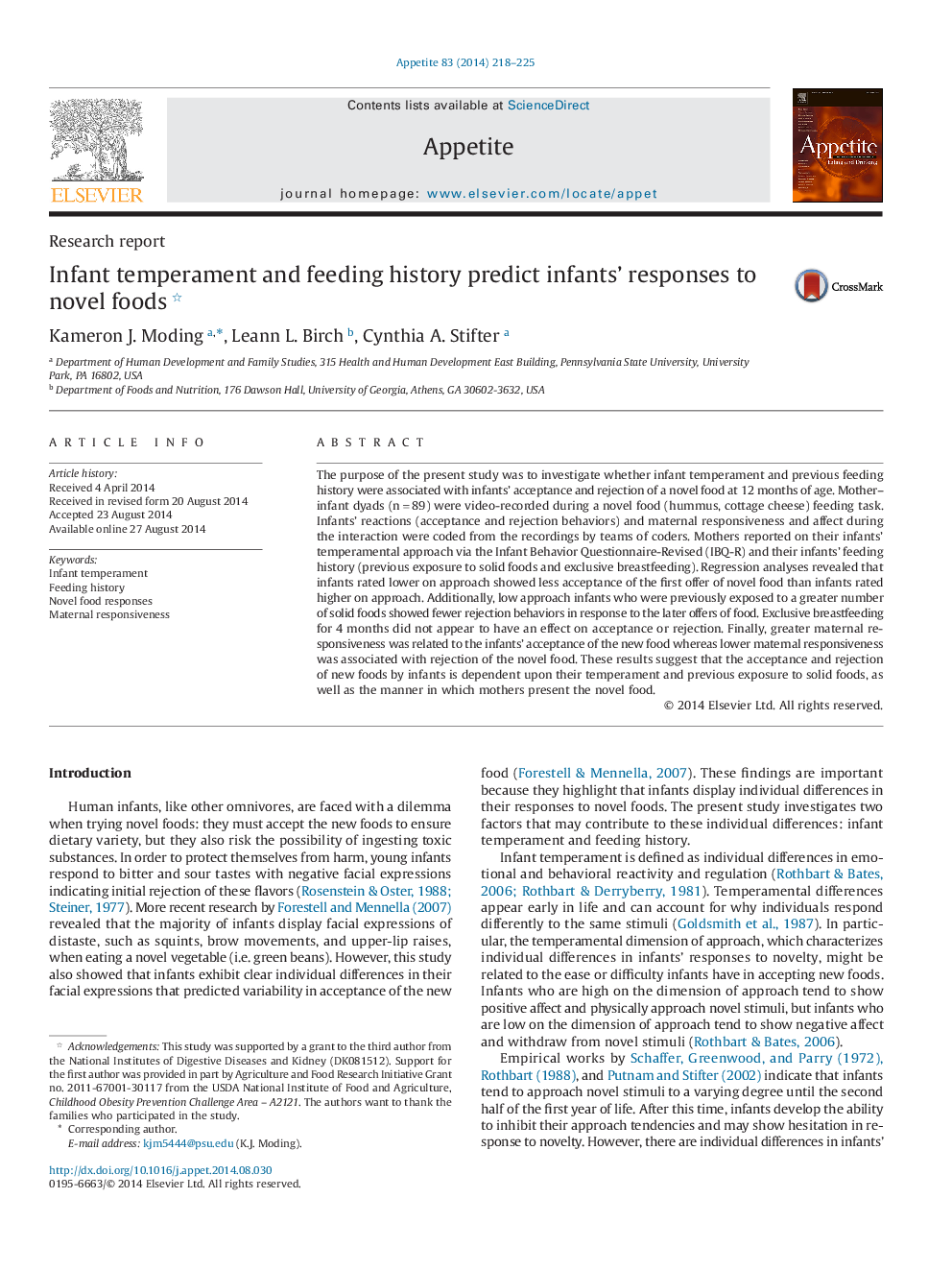| Article ID | Journal | Published Year | Pages | File Type |
|---|---|---|---|---|
| 7309753 | Appetite | 2014 | 8 Pages |
Abstract
The purpose of the present study was to investigate whether infant temperament and previous feeding history were associated with infants' acceptance and rejection of a novel food at 12 months of age. Mother-infant dyads (nâ=â89) were video-recorded during a novel food (hummus, cottage cheese) feeding task. Infants' reactions (acceptance and rejection behaviors) and maternal responsiveness and affect during the interaction were coded from the recordings by teams of coders. Mothers reported on their infants' temperamental approach via the Infant Behavior Questionnaire-Revised (IBQ-R) and their infants' feeding history (previous exposure to solid foods and exclusive breastfeeding). Regression analyses revealed that infants rated lower on approach showed less acceptance of the first offer of novel food than infants rated higher on approach. Additionally, low approach infants who were previously exposed to a greater number of solid foods showed fewer rejection behaviors in response to the later offers of food. Exclusive breastfeeding for 4 months did not appear to have an effect on acceptance or rejection. Finally, greater maternal responsiveness was related to the infants' acceptance of the new food whereas lower maternal responsiveness was associated with rejection of the novel food. These results suggest that the acceptance and rejection of new foods by infants is dependent upon their temperament and previous exposure to solid foods, as well as the manner in which mothers present the novel food.
Related Topics
Life Sciences
Agricultural and Biological Sciences
Food Science
Authors
Kameron J. Moding, Leann L. Birch, Cynthia A. Stifter,
